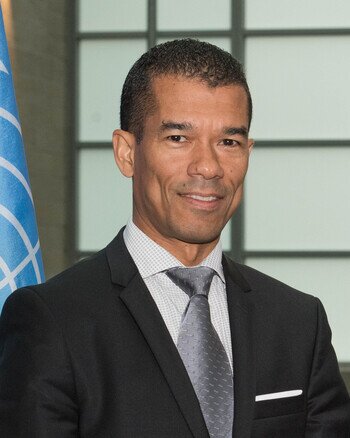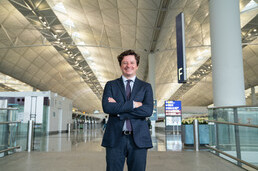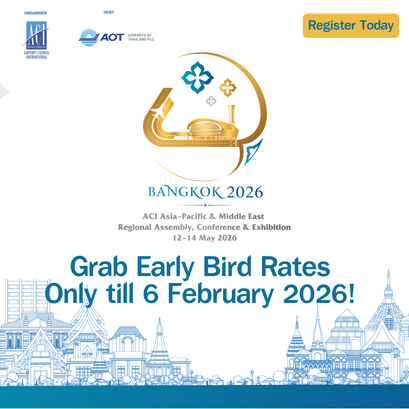The Importance of an Effective Security Culture in Aviation Operations
- 14 Sep 2021
During the month of September, ACI Asia-Pacific is highlighting one of the top priorities in airport operations: security. Over the past decades, the landscape of aviation security has constantly changed with new security threats emerging and new, additional security measures being introduced. The initiative coincides with ICAO’s designation of 2021 as the Year of Security Culture.
Next up, we hear from Sylvain Lefoyer, ICAO’s Deputy Director Aviation Security and Facilitation who invites industry stakeholders to both learn more about security culture and to share best practices on security culture.
As we look back at the past year, the aviation industry has faced unprecedented difficulties. The effects of the COVID-19 pandemic will have far-reaching effects on the industry as a whole. However, despite complications posed by the pandemic, the aviation industry must ensure the security of all its key stakeholders, assets and its important cargo.
“As the aviation industry continues to recover from the impacts of COVID-19, we have a tremendous opportunity, but also a significant challenge before us in helping to protect our passengers, crews, staff and aviation infrastructure from those who wish to do us harm.”
Threats against civil aviation continue to evolve and COVID-19 has not reduced the attractiveness of aviation as a terrorist target. Arguably, disruption in the sector has exposed new vulnerabilities and risks, with security culture coming under more pressure to remain robust. For example, increased levels of stress among airport staff might have negative impacts on their professional abilities, potentially leading to lower levels of reporting issues of concern i.e. unattended items and suspicious behaviour. Additionally, staff might have received diminished security awareness training during the pandemic.

Sylvain Lefoyer, ICAO’s Deputy Director Aviation Security and Facilitation.
Fortunately, as we continue to re-shape and recover, we have an opportunity to reinforce effective security behaviours in a returning workforce. We have an opportunity to raise security awareness in aviation operations, in an effort to educate wider aviation stakeholders and the travelling public on the benefits of a strong and effective security culture. Therefore, ICAO is partnering with its member states and other industry stakeholders to promote the Year of Security Culture, with the purpose of raising security awareness and promoting a positive security culture in aviation.
Culture is a set of norms, beliefs, values, attitudes and assumptions that are inherent in the daily operation of an organization. And are reflected by the actions and behaviours of all entities and personnel within the organization. Security culture is no different. Security is everyone’s responsibility – from the ground up and top-down and it should be embedded within all of an organization’s operations.
Throughout the year, ICAO and participating states will provide best practices on how to develop and implement a strong and effective security culture. This includes high-level endorsement of policies and programmes that define security culture and its implementation in day-to-day operations. Senior managers need to lead from the front and act as role models in delivering a strong and effective security culture. Leadership should participate fully in security countermeasures, and not be subject to exemptions or encouraging workarounds.
Additionally, all staff should understand both the threat to aviation and the importance of security in daily operations. This can be accomplished through a comprehensive training programme and clear communications strategies. Staff can become complacent about risks and may believe that they have no contribution to make to security. Therefore, staff need to be provided with the necessary training, information, advice and support. This will ensure they know what behaviours are expected of them and have the confidence to exhibit those behaviours. Managers should identify key messages that need reinforcing based on current airport vulnerabilities and risks, as well as the behaviours all staff are expected to follow. This could include messages on: the importance of staff vigilance, wearing and displaying airport passes, and the reporting of suspicious behaviour.
More information on these practices and others can be found at this website focusing on security culture. To support the Year of Security Culture, ICAO will deliver a global programme of activities to promote a strong and effective security culture in aviation, to include security culture workshops, seminars, guidance material and tools.

We are also looking for industry support, which could include the following practical actions:
- creating materials that highlight the importance of security in aviation
- training and continuous learning activities
- and establishing a framework that affords protection to reports and their sources.
I welcome all to both learn more about security culture and to share best practices on security culture with others.
Together we can make the Year of Security Culture a success.







